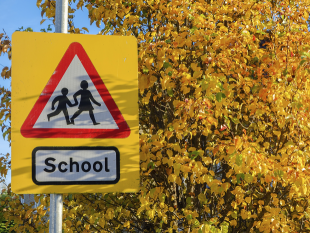
Today’s news review examines coverage of academies’ performance, and calls for clarity on the status of EU students following the vote to leave the EU.
Academies’ performance
The Education Policy Institute and the LSE have released analysis of the performance of academies approved to be sponsored after May 2010, and which converted before 2014.
The findings suggest that schools’ results tend to improve a year before they become a sponsored academy. They then rise further after a school becomes a sponsored academy, before tailing off.
The report was covered in Schools Week and the Guardian today, Wednesday 7 September.
We are clear that the academy programme puts control of running schools in the hands of teachers and school leaders – the people who know best how to run their schools. This system will allow us to tackle underperformance far more swiftly than in a local authority-maintained system, in which many schools have been allowed to languish in failure for years. At the same time, it will allow our most successful and popular schools to expand their reach to even more children.
A Department for Education spokesperson said:
Our reforms, which have academies at their heart, are raising standards for children across the country, with over 1.4million more pupils in good or outstanding schools than in 2010.
Converter academies continue to perform above the average for state-funded schools, while sponsored academies are typically schools that were previously poorly performing, but have been improving on average. Our ambition remains for all schools to become academies, with more schools joining multi-academy trusts (MATs), because we know this is an effective way to bring about sustained improvement.
EU students
Media including the Times, BBC online, the Times Higher Education and the Independent have today reported on calls by Dame Julia Goodfellow, vice-chancellor of the University of Kent, for the government to clarify the status of EU students applying to university for next year, following the vote to leave the EU.
However, the coverage does not reflect that the Prime Minister has been clear that she wants to protect the status of EU nationals already living here, and the only circumstances in which that wouldn’t be possible is if British citizens’ rights in European member states were not protected in return. In addition, the Secretary of State for Exiting the European Union, David Davis, set out the steps the government is taking in a statement to Parliament this week – including meetings that have been held with representatives from the universities sector.
A Department for Education spokesperson said:
EU students make an important contribution to our world-class universities, and we want that to continue. While the UK remains a member of the EU, rules regarding the student loans EU nationals receive are unchanged - EU students currently eligible to receive funding will continue to do so for courses they are currently enrolled on, or about to start this Autumn.
The government will continue to work closely with the sector.
Follow us on Twitter and don't forget to sign up for email alerts.